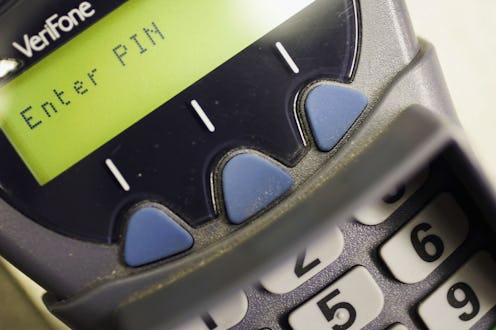News
Here Are The Consequences Of Freezing Your Credit

This week, the credit reporting agency Equifax was hit with one of the worst crises in its existence. Namely, it was the victim of a massive hack, potentially compromising the vital personal information, including Social Security numbers, of more than 140 million Americans. It's also been the target of immense scrutiny since news of the hack went public, over both its security standards, and the fact that it initially continued to charge its customers to implement a credit freeze. But, you might ask after the Equifax hack, what is a credit freeze?
If you've never had the need to consider freezing your credit ― if, in other words, you've never been caught up in a potential identity theft or financial fraud situation ― then it's totally understandable why you wouldn't be familiar with the concept. In the immediate aftermath of the hack, Equifax was continuing to charge customers in order to freeze their credit, demanding a fee to enact a protective countermeasure against the risk of identity theft and impersonation that the security breach brought about. Subsequently, the company reportedly backed off, offering free credit freezes to its customers, as well as refunds for those who had already paid a fee.
The concept of the credit freeze is pretty straightforward. Basically, it's a means of preventing would-be identity thieves from taking out lines of credit in your name, by placing a freeze on your credit that shows up if a financial institution requests your report. It doesn't negatively impact your credit score, so you don't have to worry about that, although it would simultaneously hinder your own ability to use credit.
As such, it's a step that you probably shouldn't take if you're in the process of purchasing a house, or a car, of some other top-dollar purchase that could require you to take out a loan. Because if you try to do that while your credit is frozen, that's going to be discovered by whatever company or financial institution goes to check. While it's a potentially useful countermeasure against fraud, in other words, it can be a double-edged sword depending on your circumstances.
Of course, if you enact a credit freeze, you can similarly thaw it out when you so desire. That would require you to use a PIN assigned by Equifax at the time of the initial freeze, although as Kristin Wong noted for Lifehacker this week, even the way Equifax has assigned these PINs has drawn criticism for being insufficiently secure.
In any event, even though there are still enduring concerns about whether Equifax's credit freezes are enough to mitigate this disastrous data breach, the credit freeze is basically the go-to response many people are turning to, in the hopes of steeling themselves against identity theft and fraud. But when you're talking about tens of millions of Social Security numbers getting hacked, you can't necessarily regain the same sense of security you once had.
It's worth noting that Equifax isn't waiving the credit freeze fee indefinitely. Although there's no telling what public pressure might cause them to do in the future, as of now, they're only waiving the fee over the next 29 days.
In other words, if this is a move you're thinking about making, you should try to come to a decision before that window of time expires. After all, if you're now having to contend with the possibility that your crucial personal and financial data has been stolen by hackers, the last thing you need is to heap insult on injury by having to shell out money for the service.